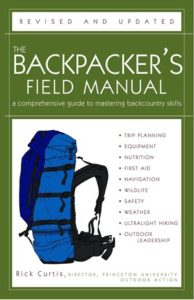by Reb Gregg & Catherine Hansen-Stamp
Kelly v. United States of America, 2011 U.S. Dist. LEXIS 89741 (North Carolina District Court 2011).
You might think it obvious that a parent can act on his or her minor child’s behalf to release the child’s right to sue. We have had several courts ruling on this issue recently. The trend appears to be “no, they cannot.” However, some courts have carved out a distinction between “commercial” and “non-commercial” entities in determining who is more worthy of protection and thus, whether a parent can release these rights on behalf of their child. The North Carolina Court takes this path in our latest case offering. What do you think? Is the distinction valid?
The Recreation Law Center Terms of Use
All material from the OutdoorEd Recreation Law Center are for general reference and are not intended as legal advice. Recreation and adventure providers should work with experienced legal counsel, including counsel licensed in their jurisdiction, to advise them on how developing case law or legal issues may impact matters specific to their operation and applicable state laws. This material is proprietary and copyrighted by the authors and may not be reproduced in any format on any other site.
Morgan Kelly was a 15 year old cadet in the Navy Junior Reserve Officer Training Corps (“NJROTC”) program in her high school. As part of this program, she chose to voluntarily attend an orientation visit to Camp Lejune in North Carolina. Before Morgan could participate, the U.S. Marines required both Morgan and her mother to sign a “Waiver of Liability and Assumption of Risk” form (“Waiver”). Basically, the waiver provided that the signing individual assumed all risks of participation in the “event,” and waived any right to sue the U.S. Marines or collect any damages from them for injuries or loss resulting from participation in the activities or use of any U.S. Marines’ facilities. The signing individual further agreed to “hold the government harmless for any resulting injury.”
Morgan arrived at Camp Lejune and participated in some scheduled training activities at the “confidence course.” She allegedly suffered serious injuries while participating in a “Slide For Life” activity. Kelly’s parents, for themselves and on her behalf (Plaintiffs), filed a lawsuit against the U.S. Marines, claiming that their negligence caused Kelly’s injuries. Among other defenses, the U.S. Marines (Defendant) claimed, in response, that plaintiffs’ claims were barred as a result of the Waiver that Kelly and her mother had signed, before participating in the Camp Lejune activities. Before trial, Plaintiffs brought a motion to strike this defense, claiming that under North Carolina law, a parent is unable to waive their minor child’s pre-injury right to sue for negligence.
The Court cited North Carolina law which generally supports—as do the laws in most states—the ability of parties to enter into contractual releases of liability, releasing another party for its negligence. The Court noted—again, as in most states—that these documents will be strictly construed against the party drafting the document, and only enforced on a case by case basis and if those documents meet certain criteria. North Carolina courts “will enforce such contracts unless the contract (1) is violative of a statute; (2) is gained through inequality of bargaining power; or (3) is contrary to a substantial public interest.” (citing N.C. case law). However, the Court noted that Kelly’s agreement to release the Defendant from liability was unenforceable, because she was a minor and lacked “contractual capacity”—in other words, she was not competent to enter into a contract. 1 The Court cited the general rule that any release signed by a minor is voidable and can be disaffirmed. The Court found that the Plaintiffs’ lawsuit against Defendant amounted to Kelly’s effective disaffirmance of her Waiver. The Court ruled, accordingly, to grant Plaintiff’s motion to strike Defendant’s waiver defense—as it applied to Kelly .
The Court then discussed Kelly’s mother’s ability to effectively release Kelly’s rights on her behalf. The Court found that this ruling would require an analysis of the third factor (described above)—that is, whether such a release would be contrary to a substantial public interest. (The Court rejected Plaintiffs’ claim, under the second factor, that the release was gained through “inequality of bargaining power” as it found that Kelly could have easily chosen not to participate in the activity (it was not a necessary service). Being that the Court was a federal court, in making its decision, it recognized that it must predict how the North Carolina Supreme Court would rule on this issue, and align its ruling accordingly. The Court found no controlling precedent from the North Carolina Supreme Court for it to rely upon. As a result, the Court looked to the law of other jurisdictions for “persuasive guidance,” noting that the majority rule is that a parent cannot release the pre-injury rights of their minor child to sue for negligence (citing the Iowa Supreme Court’s recent discussion in Galloway v. State, 790 N.W.2d 252, 256 (Iowa 2010)).
The Court predicted that the North Carolina Supreme Court would go the way of the majority. However, it noted that some courts have recognized an exception to this general rule, in the case of non-commercial entities—commonly, as the Court described—“non-profit activities sponsored by schools, volunteers, or community organizations,” citing such rulings in California, Ohio, Massachusetts and Florida. The Court determined that the North Carolina Supreme Court would recognize such an exception, and so ruled against Plaintiffs’ motion to strike the Waiver as a defense to Plaintiffs’ claims. In other words, Defendant could proceed with its defense that Plaintiff mother’s waiver barred both her and her daughter’s claims. Citing what the Court saw as a factually similar Florida case, the Court held:
“Here, it is undisputed that the liability waiver was executed on behalf of a fifteen-year-old high school student by her mother in conjunction with the student’s participation in a school-sponsored activity…the court concludes that the activity falls “within the category of commonplace child oriented community or school supported activities for which a parent or guardian may waive his or her child’s litigation rights in authorizing the child’s participation.” The Court went on to hold: the “school-sponsored enrichment program…was extracurricular and voluntary. On these facts, the court anticipates that the North Carolina Supreme Court would hold the liability waiver enforceable under the exception for non-commercial or community-based activities.”
Although the Court did not actually rule on the enforceability of the waiver (as that was not before the Court), the Court’s ruling foreshadows the likelihood that it would find Plaintiff mother’s waiver enforceable to ultimately bar Plaintiffs’ negligence claim.
Discussion
- We talked about these issues in our discussion of the Florida Supreme Court’s decision in Kirton v. Fields (“Parents Can’t Sign pre-injury Releases for Their Children? Who Thought They Could?” – Adventure & Recreation Law Center, June, 2009). In that case, the Florida court struck down a parent’s waiver of a child’s claims following the child’s death in a “commercial” ATV park, but left open the possibility that a parent could waive a child’s right to sue in the context of a “non-commercial” activity. Subsequently, the Florida legislature enacted a statute (Fla. Stat. 744-301) allowing parents to “release” their minor child’s right to sue a “commercial activity provider” for injuries, but only those resulting from an inherent risk in the activity. None of the relevant terms are defined in the law, and the statute leaves many other questions unanswered. Interestingly, the statute defines “inherent risks” to include the negligent or reckless conduct of the minor child or another participant, but clarifies that a “participant” “…does not include the activity provider or its owners, affiliates, employees, or agents.” (Fla. Stat. 744-301(3)(a)(2)). The law was prompted by mounting pressure coming from Florida decisions, like the Kirton case, which rejected a parent’s pre-injury ability to release their minor child’s right to sue for negligence. The statute preserves the parent’s ability to “waive and release, in advance, any claim or cause of action against a noncommercial activity provider, or its owners, affiliates, employees, or agents, to the extent authorized by common law,” despite the fact that the term “noncommercial” is still not clearly defined by Florida common law.
- On that note, it is curious how many terms are loosely tossed around with this “commercial” versus “non-commercial” distinction. Courts, like Kelly, talk about “school sponsored” and “community based” activities, “non-commercial” activities, and “non-profit” activities. If the North Carolina Supreme Court, once it is faced with this issue, agrees with the Federal Court’s decision in Kelly, how far will this net be cast? Must the activity be school or community sponsored in order for an organization to have some comfort that its “waiver” will be enforced? Must the organization be a non-profit? What about a for-profit organization that primarily conducts community based activities? Or a for-profit that works exclusively to provide opportunities for schools or non-profits? How about a non-profit that clearly makes a “profit” in the commercial sense? The Kelly Court leaves many questions left unanswered.
- The Kelly Court discusses Court decisions that have (they claim, almost exclusively) ruled against enforcing a parent waiver on behalf of their child in the context of a commercial activity. Contrary to the Kelly Court’s assertions, we have found cases in other jurisdictions that have enforced a parent’s release of their minor child’s rights in cases of a commercial character. In addition, of note is a law passed by the Colorado legislature in 2003 (C.R.S. 1-1-123), following the Colorado Supreme Court’s decision not to uphold these types of releases. This law allows a parent to release the preinjury rights of their minor child to sue for negligence. The Colorado law makes no distinction between commercial and non-commercial activities in allowing such parental releases—instead noting such releases are intended to benefit “public, private and non-profit entities”). In a recent case, a release of liability was upheld, dismissing claims brought by an injured minor camper against a private, for-profit camp. (See, Hamill v. Cheley Colorado Camps, 2011 Colo. App. LEXIS 495). The Colorado law notes that these entities “…need a measure of protection against lawsuits, and without the measure of protection these entities may be unwilling or unable to provide the activities”—in justifying the need for the legislation.
- As the Kelly Court indicates, clearly the trend—among courts recent rulings on this issue—is to not allow a parent to release their child’s pre-injury right to sue for negligence. Among other reasons, the common public policy rationale for these rulings is the state’s interest in protecting children from the improvident decisions of their parents. Recent rulings include Galloway v. State of Iowa, 2010 Iowa Sup. LEXIS 109 (child injured on educational “Upward Bound” field trip) and Thode v. Monster Mountain, et al, 2010 U.S. Dist. LEXIS 130407 (minor injured while riding motocross on a commercial track). These cases follow similar court decisions out of, among other states, Washington, Utah, Tennessee, Illinois, Michigan, Maine, New Jersey, New York and Texas. In addition to North Carolina’s limited ruling, states that have allowed a parent to release their minor child’s pre-injury rights to sue for negligence include Colorado, California, Ohio, Massachusetts and Wisconsin (as well as Alaska, via statute).
- In Kelly, Plaintiffs argued that even if Plaintiff mother’s release of Kelly’s claims could be found enforceable, it wasn’t enforceable as to the parents’ claims in this case, because the document was written in the first person—and directed to “I – the participant.” The Court rejected this contention, finding that, despite this awkward language, the document was written broadly enough to contemplate the waiver of both the minor participant and her parents’ claims. Consider this carefully, though. Many organizations do not give thought to making the document’s language “fit” the intended signing parties. If the document is intended to be signed, for example, by a minor and his or her parent, take the time (with your legal counsel) to craft the wording accordingly. It is interesting to note that only one parent signed the Waiver, but the Court appeared willing to extend the Waiver’s enforceability to bar both parents’ claims.
- Procedurally, the Kelly Court chose not to ask the North Carolina Supreme Court how it would answer the parent for minor waiver question before it chose to rule on the issue. Other courts actually hold their ruling until after they have received answer back from the state supreme court, following submission of a “certified question” to that court. That way, they get the answer from “the horse’s mouth” and aren’t left guessing.
1 Except when authorized by a specific statute.


